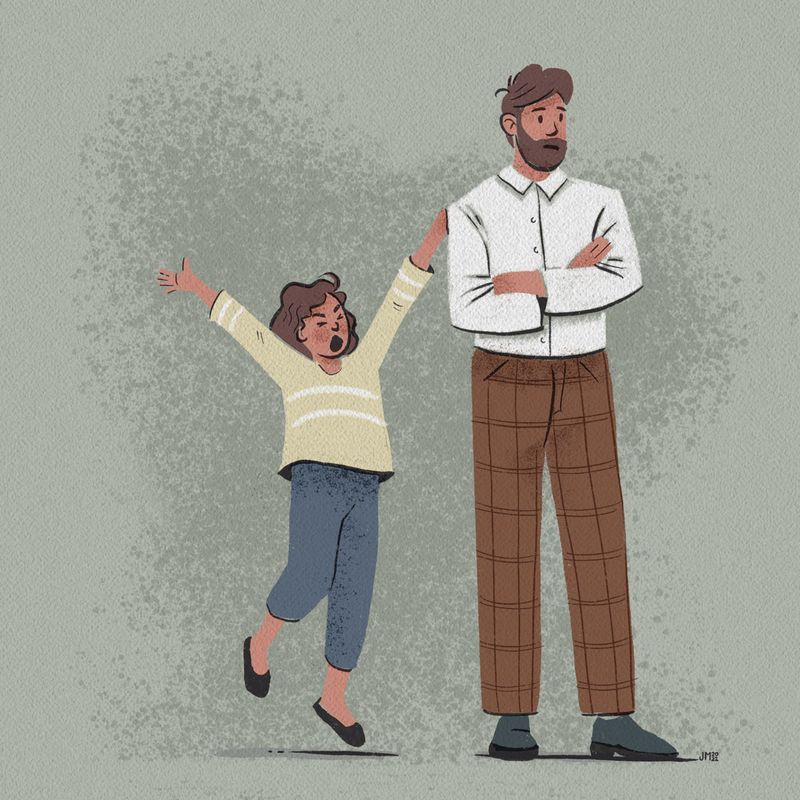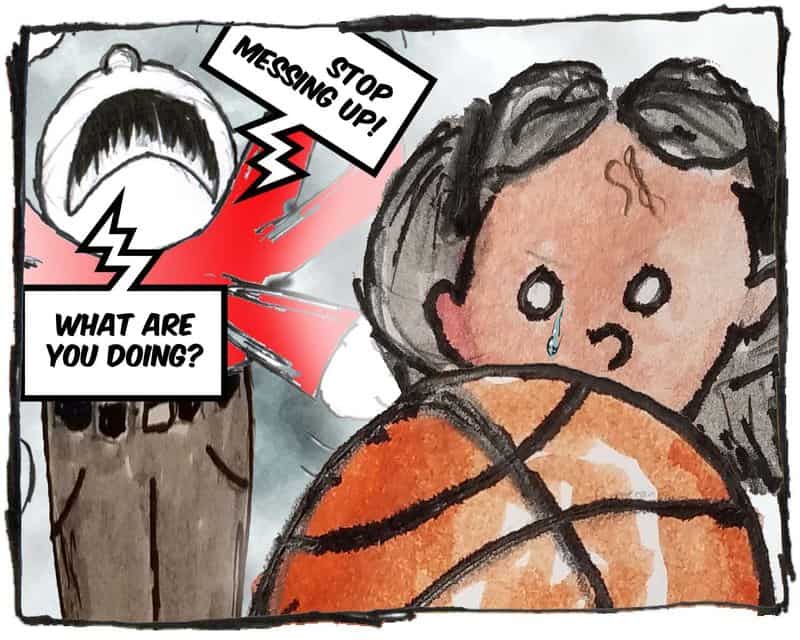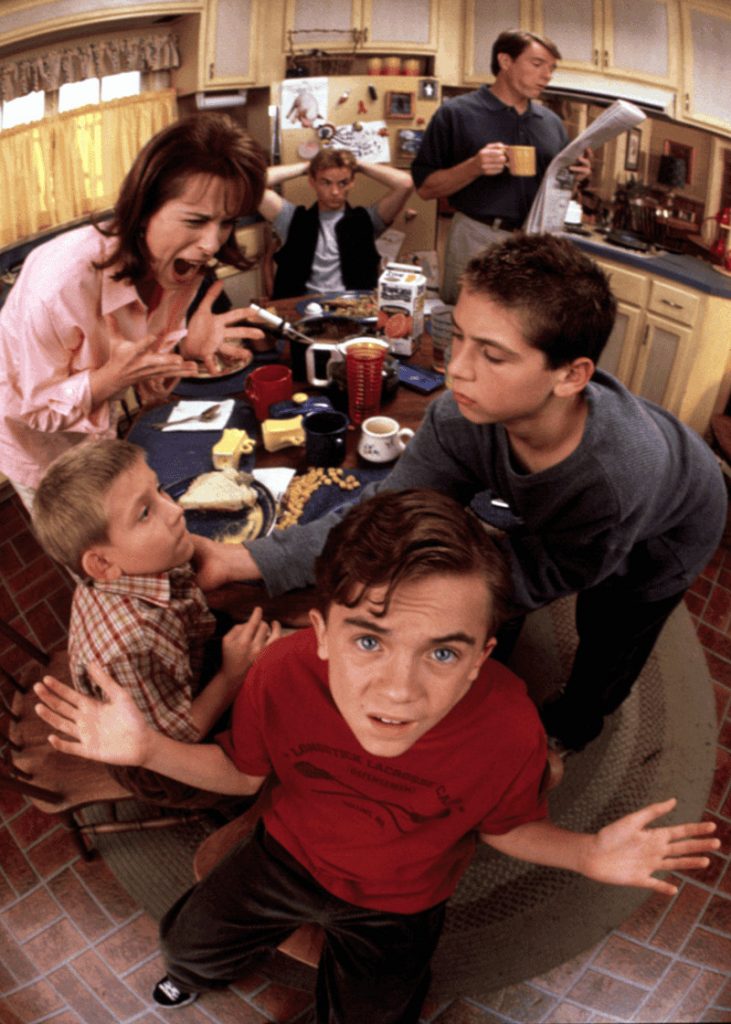Growing up in a dysfunctional family can leave lasting marks that are often hard to identify and overcome. Recognizing these red flags is the first step towards healing and breaking the cycle of dysfunction. In this blog post, we will explore 12 distinct signs that may indicate you grew up in such an environment. By gaining awareness, you can begin to work on these issues and strive for healthier relationships and a more balanced life.
1. Lack of Boundaries

Boundaries are crucial for healthy relationships, yet in a dysfunctional family, they may be absent or poorly defined. This can lead to confusion and frustration as personal space and privacy are often disregarded. You may find yourself constantly overstepping others’ limits or having yours violated.
Growing up without understanding proper boundaries can affect your interactions outside the family. It might lead to challenges in setting limits with colleagues, friends, or partners. Learning to establish and respect boundaries is essential for personal growth and maintaining healthy relationships.
2. Emotional Neglect

Emotional neglect occurs when a family fails to acknowledge or respond to your emotional needs. This can leave you feeling unseen and unheard, impacting your self-esteem and emotional intelligence. You might struggle with expressing emotions or understanding others’ feelings.
Living in such an environment can lead to emotional detachment, making it challenging to form deep connections. Recognizing emotional neglect helps in seeking therapy or support groups to rebuild emotional awareness and empathy. Addressing these issues can pave the way for more fulfilling and emotionally healthy relationships.
3. Constant Criticism

Constant criticism can erode self-esteem and create a pervasive sense of inadequacy. Growing up under relentless scrutiny often leads to internalizing these negative messages, affecting your self-worth and confidence.
This environment can foster perfectionism or fear of failure, making ordinary tasks daunting. Understanding that these criticisms are not reflective of your true worth is vital. Engaging in self-reflection and positive affirmations can help counteract these ingrained beliefs, enabling you to pursue personal goals without the burden of unrealistic expectations.
4. Lack of Emotional Expression

In some families, emotions are stifled, creating an atmosphere of emotional suppression. This lack of expression can be confusing, leaving you unsure of how to process feelings. You might grow up feeling emotionally numb or overwhelmed by unprocessed emotions.
Recognizing this dynamic is key to developing emotional intelligence. Seeking therapy or engaging in artistic outlets can help express pent-up emotions. Learning to articulate feelings fosters communication skills, essential for nurturing honest relationships and a deeper understanding of oneself.
5. Unpredictable Behavior

Dysfunctional families often exhibit unpredictable behavior, creating a chaotic environment. This instability can lead to anxiety, as you never know when things might change suddenly. It can also foster hyper-vigilance, as you’re always on edge, anticipating the next outburst.
Understanding this pattern helps in seeking stability and consistency in your own life. Building routines and seeking supportive networks can mitigate the impacts of growing up in such uncertainty, providing a sense of control and security.
6. Substance Abuse

Substance abuse within a family can create a toxic environment, overshadowing healthy interactions. It often involves denial and enabling behaviors, making it challenging to recognize the problem.
Growing up in such a setting can normalize substance use or lead to a fear of addiction. Awareness is the first step in breaking this cycle. Seeking support from groups like Al-Anon can provide guidance and understanding. Opening dialogues about addiction and recovery fosters healing, offering hope for a healthier future.
7. Role Reversal

Role reversal happens when children take on adult responsibilities, often becoming caretakers for their parents or siblings. This shift can rob you of a typical childhood, fostering resentment or burnout.
Understanding that this dynamic is unhealthy is crucial. It might lead to difficulties in letting go of control or seeking help. Embracing a more balanced lifestyle and allowing yourself to be cared for is essential for healing. Therapy can aid in releasing these burdens, encouraging growth and healthier relationship roles.
8. Secrets and Lies

In dysfunctional families, secrets and lies often prevail, fostering mistrust and fear of truth. This environment can lead to a distorted perception of reality, making honesty feel dangerous.
Recognizing this pattern is key to building trust and integrity. Encouraging open communication and honesty in your relationships can dismantle these barriers. Seeking therapy can help unravel the web of deceit, allowing for more authentic connections and a clearer understanding of yourself and others.
9. Fear-Based Control

Fear-based control is a pervasive tactic used to maintain power within a family. This dynamic can stunt personal growth and foster anxiety, making you feel powerless.
Breaking free from this control involves recognizing its impact and seeking autonomy. Building self-confidence through personal achievements can help reclaim power. Engaging in supportive relationships and setting personal goals can further empower you, leading to a more independent and fulfilling life.
10. Neglecting Personal Needs

Neglecting personal needs often means putting others first, leading to burnout and resentment. In dysfunctional families, self-care is often viewed as selfish, creating guilt around personal well-being.
Recognizing the importance of self-care is vital for mental and physical health. Prioritizing your needs can lead to a more balanced life, allowing you to care for others without sacrificing yourself. Developing a self-care routine and seeking supportive communities can reinforce this change, fostering a healthier lifestyle.
11. Over-involvement or Enmeshment

Over-involvement or enmeshment blurs personal boundaries, leading to a lack of individuality. This dynamic can create confusion about your identity, making separation feel like betrayal.
Understanding the need for personal space is vital. Encouraging individuality and setting boundaries can promote personal growth. Therapy and personal exploration can aid in defining who you are, outside of family roles, fostering a sense of self and independence.
12. Shame and Guilt

Shame and guilt are prevalent in dysfunctional families, often used to manipulate behavior. These emotions can lead to a lack of self-worth and hinder personal growth.
Identifying these feelings as tools of control is essential for healing. Engaging in self-reflection and positive self-talk can help release these burdens. Building a supportive network and seeking professional help can further assist in overcoming these destructive emotions, paving the way for a more confident and liberated self.
13. Lack of Self-Worth

Growing up in a dysfunctional family often results in a diminished sense of self-worth. Constant criticism, neglect, or manipulation can leave you questioning your value. You might have internalized negative messages about who you are, leading to feelings of inadequacy that linger into adulthood.
This lack of self-worth can manifest in relationships, work, and personal goals, often making it difficult to feel deserving of love, success, or happiness. Recognizing this pattern is the first step toward building self-esteem.

Well, hello there!
My name is Jennifer. Besides being an orthodontist, I am a mother to 3 playful boys. In this motherhood journey, I can say I will never know everything. That’s why I always strive to read a lot, and that’s why I started writing about all the smithereens I came across so that you can have everything in one place! Enjoy and stay positive; you’ve got this!

